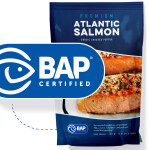Rampant instances of species substitution, mislabeling, and low domestic prices related to U.S. shrimp have led researchers at Florida State University to develop a rapid authenticity test that allows restaurants, marketplaces, and other seafood sellers to identify Atlantic white shrimp quickly and efficiently.
The research process at FSU, located in in Tallahassee, Florida, U.S.A., originally began with a focus on red snapper. David Williams, the CEO of SeaD Consulting in Houston, Texas, U.S.A., partnered with FSU Assistant Professor Prashant Singh and Samuel Kwawukume, a graduate student at the university, to develop a test that would allow seafood industry professionals to quickly identify the DNA of red snapper – a premium species prone to substitution.
After Singh and his team successfully developed an effective red snapper test, they then began modifying the test to work for shrimp.
“The domestic shrimp industry is in a terrible economic situation due to [instances of] imported shrimp substitution,” Williams told SeafoodSource. “There is no money being generated by the U.S. shrimp industry, [which] needs to differentiate wild shrimp to show its economic value.”
As the most popular shellfish in the U.S., mislabeling of farmed shrimp as wild shrimp – and vice versa – is a problem, Williams and Singh said.
A 2014 Oceana study found mislabeling rates ...
Photo courtesy of FSU Photography Services








